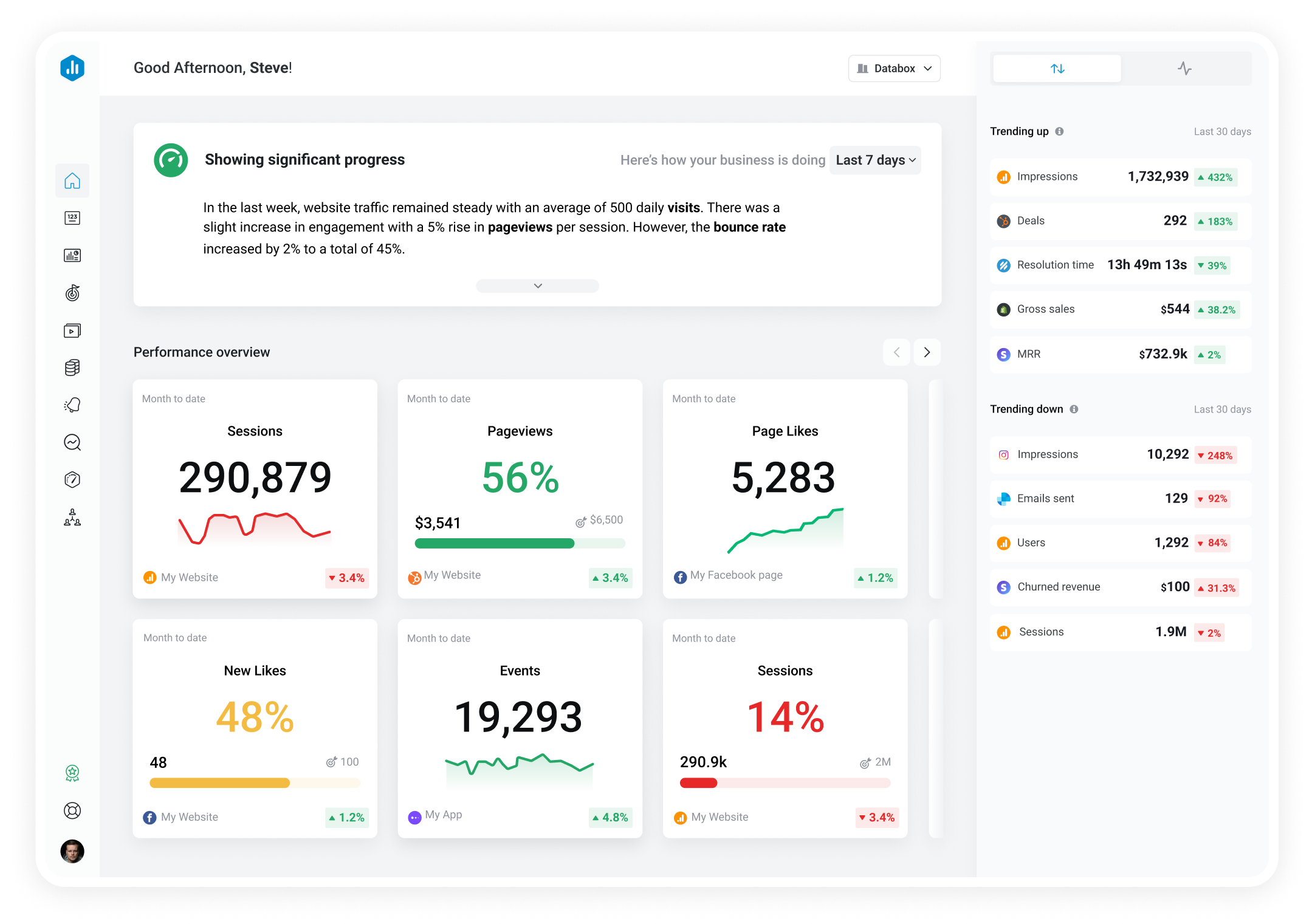Track all of your key business metrics from one screen
GET STARTED
 QuickBooks
Current Liabilities (Accrual)
QuickBooks
Current Liabilities (Accrual) Current Liabilities measures the amount of money a company owes for debts that are due within a year, such as loans, accounts payable and taxes.
With Databox you can track all your metrics from various data sources in one place.

Used to show a simple Metric or to draw attention to one key number.
Databox is a business analytics software that allows you to track and visualize your most important metrics from any data source in one centralized platform.
To track Current Liabilities (Accrual) using Databox, follow these steps:
 Goals
Goals Scorecards
Scorecards Metric Digest
Metric Digest Metric Builder
Metric Builder Data Calculations
Data Calculations Performance Screen
Performance Screen